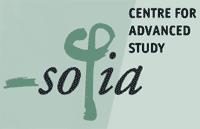AEGEAN MACEDONIANS AND THE BULGARIAN IDENTITY POLITICS
AEGEAN MACEDONIANS AND THE BULGARIAN IDENTITY POLITICS
Author(s): Tchavdar MarinovSubject(s): Politics / Political Sciences
Published by: Centre for Advanced Study Sofia (CAS)
Summary/Abstract: Based on archival research, this paper is part of a larger study focusing on the migration into Bulgaria of Slav-speaking refugees from the Greek Civil War. The study analyzes the measures taken by the Bulgarian Communist Party and state leadership to homogenize this new Macedonian diaspora. The members of this refugee community are labeled for the most part “Aegean Macedonians”. This designation seems to be the most common selfidentifi cation of Slav-speaking political emigrants originating from Greek or Aegean Macedonia1, who otherwise share diverse national identities – “Macedonians”, “Greeks” or “Bulgarians”. This study offers an analytical approach to the problem of national identity in relation to political activism and refugee experience. It also provides an overview of competing identity politics – those of communist Bulgaria, of the Greek Communist Party and of Tito’s Yugoslavia, and analyzes their function in the construction of the national identity of refugees and their identity as refugees. Parallel research on Macedonian diaspora communities from Aegean/Greek Macedonia that reside in Australia, Canada and elsewhere, will document the birth of a transnational political activism. Even today, this activism demands recognition of collective minority rights and infl uences the identity formation of former refugees from Greece in other parts of the world. In this way, this paper sheds light on the complex development of Macedonian nationalism outside the Former Yugoslav Republic of Macedonia, though in a direct or indirect relation with it. The paper is also based on a study completed on Aegean Macedonians residing mostly in the Republic of Macedonia, who were participants in the Third meeting of child-refugees (Florina, 2003). I compare the study to similar narratives of Slav-speaking “Greek political emigrants” residing in Bulgaria.
Journal: CAS Sofia Working Paper Series
- Issue Year: 2007
- Issue No: 1
- Page Range: 1-17
- Page Count: 17
- Language: English

